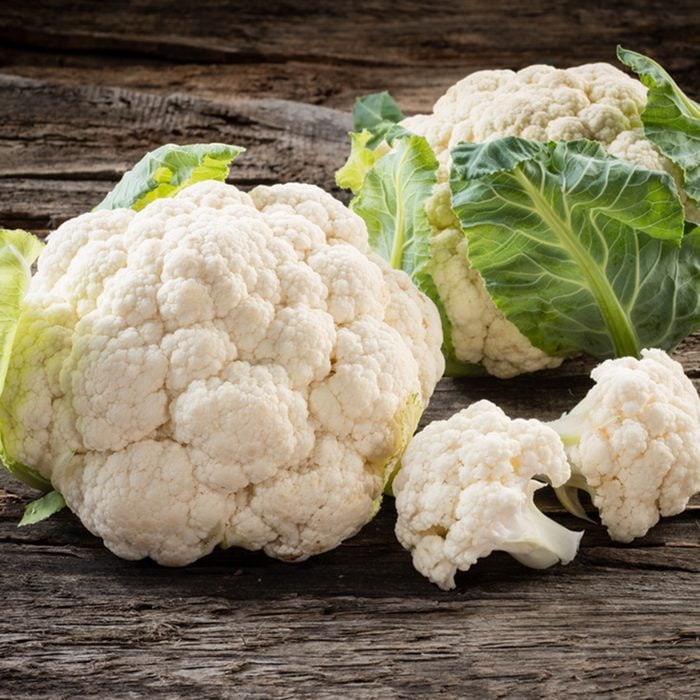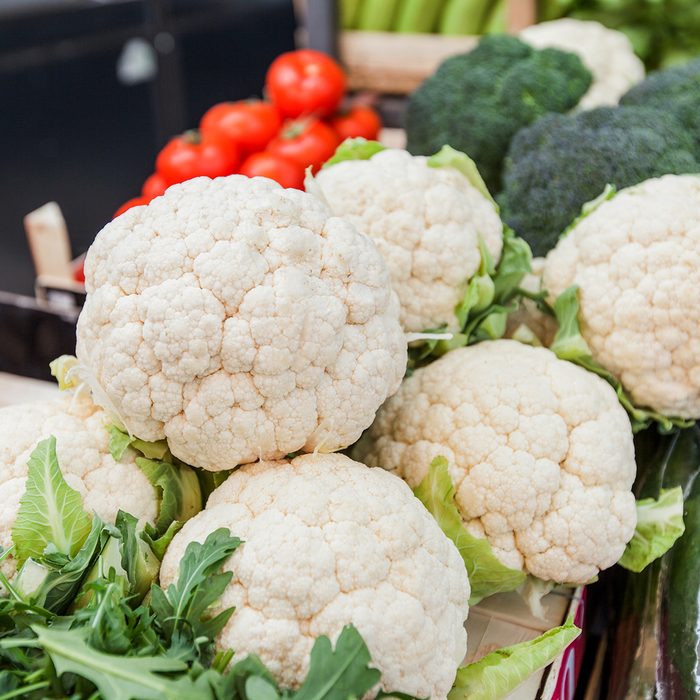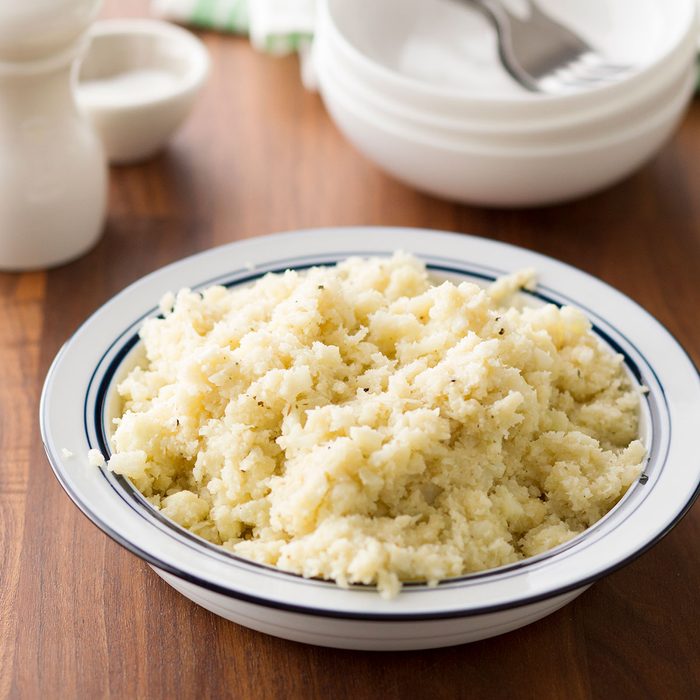
Strengthens Bones
The body needs vitamin K to maintain strong and healthy bones—and cauliflower’s got a lot. Eating a cup of raw cauliflower as a snack is a great way to nourish bone health. Speaking of building strong bones, here are foods that pack bone-boosting calcium.

Stimulates Circulation
Wondering what foods you can eat to improve blood flow? No surprise, cauliflower is a smart choice. Thanks to its high fiber content, it may be able to encourage better circulation. To get the health benefits, learn how to make cauliflower rice.

Helps with Weight Loss
To anyone looking to lose a few pounds, the beauty of cauliflower is its versatility. This vegetable makes a low-calorie, low-carb, low-fat sub for traditional starches like pasta. For new ways to work cauliflower into your meal plan, check out these clever recipe ideas.

Encourages Healthy Digestion
Cauliflower is one of the top foods naturally high in the insoluble fiber. Because of this, it can prevent constipation and encourage an overall healthy digestive tract. Regular intake of dietary fiber may even help prevent colon cancer.

Boosts the Immune System
The plentiful antioxidants in cauliflower can help regulate the immune system and prevent inflammation. Is it better to eat cauliflower raw or cooked? You can preserve maximum nutrients by eating the vegetable raw, or minimally cooked via steaming or stir-frying. Find more of our favorite immunity boosters.

Reduces the Risk of Heart Disease
Is cauliflower a superfood? Its high concentration of nutrients would say yes. This food is not only high in vitamins B, K and C, but also antioxidants and fiber. In fact, eating cauliflower can also fight heart disease.

Helps Prevent Cancer
Called “the new kale” by the American Institute for Cancer Research, cauliflower is well-regarded to be preventative against cancer. Studies have shown cauliflower is high in phenethyl isothiocyanate (PEITC), a naturally occurring anti-cancer compound. PEITC attacks stem cells of cancers, stopping tumors in their tracks.

Improves Memory
The choline in cauliflower has been shown to improve the way the mind works. It can specifically help with sleep, memory and learning. Interested in other brain-boosting foods? Pick up a bag of spinach, because it’s high in folate, iron and calcium.

Combats Diabetes
Because it’s naturally low on the glycemic index, cauliflower won’t spike blood sugar the way some other foods might. The best diet to prevent diabetes will be made up of at least half non-starchy fruits and vegetables such as cauliflower, according to Harvard Medical School. For more diabetic cooking ideas, check this out.

Protects Skin
Want a way to safeguard your skin from sun damage, working from the inside out? There are lots of foods than can boost skin health! The sulforaphane in cauliflower may actually protect the skin from ultraviolet radiation damage and skin cancer.

Benefits Eye Health
The sulforaphane in cauliflower has also been shown to be beneficial for eye health, specifically the eyes’ retinal tissues. It may reduce the risk of cataracts, macular degeneration and other vision problems.
